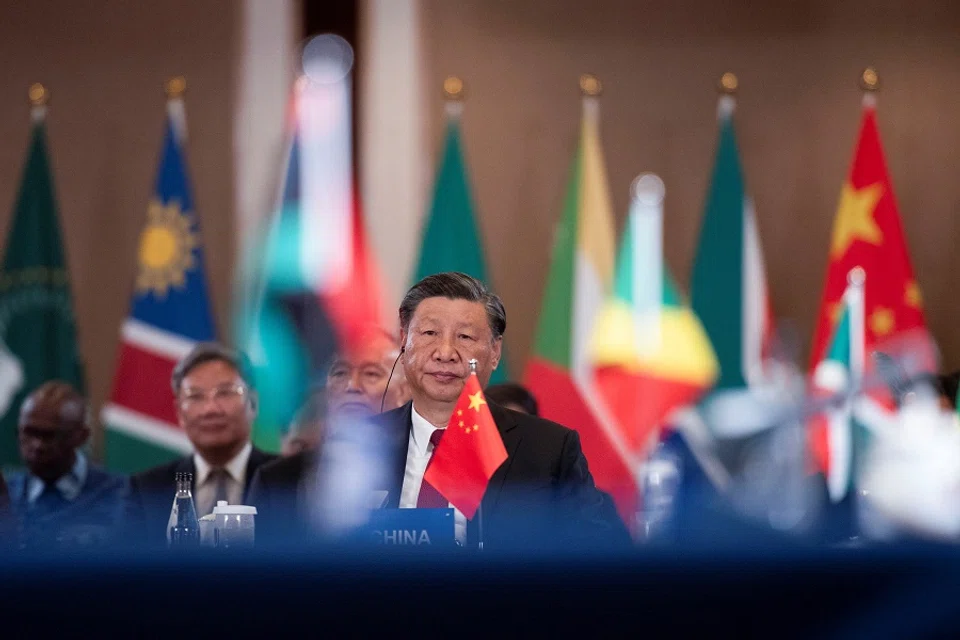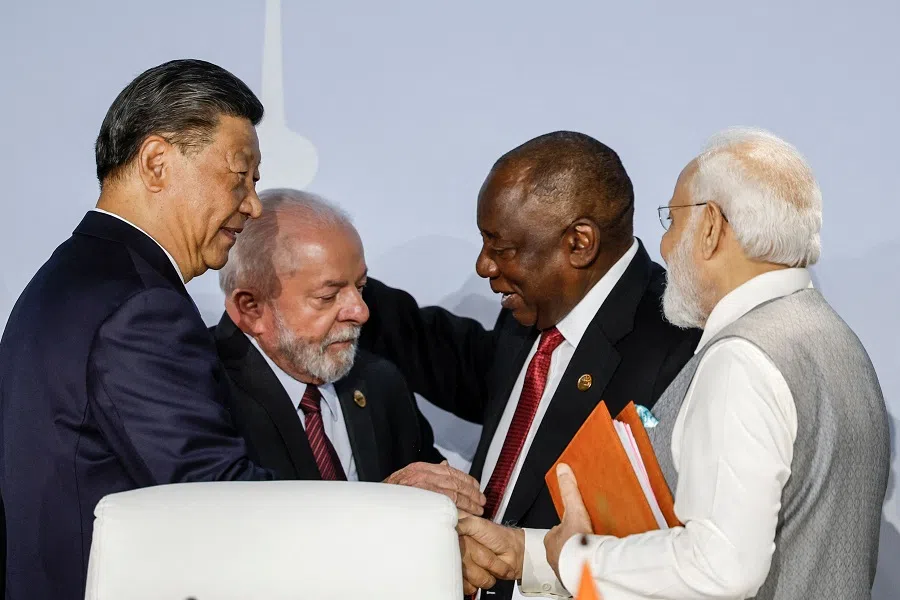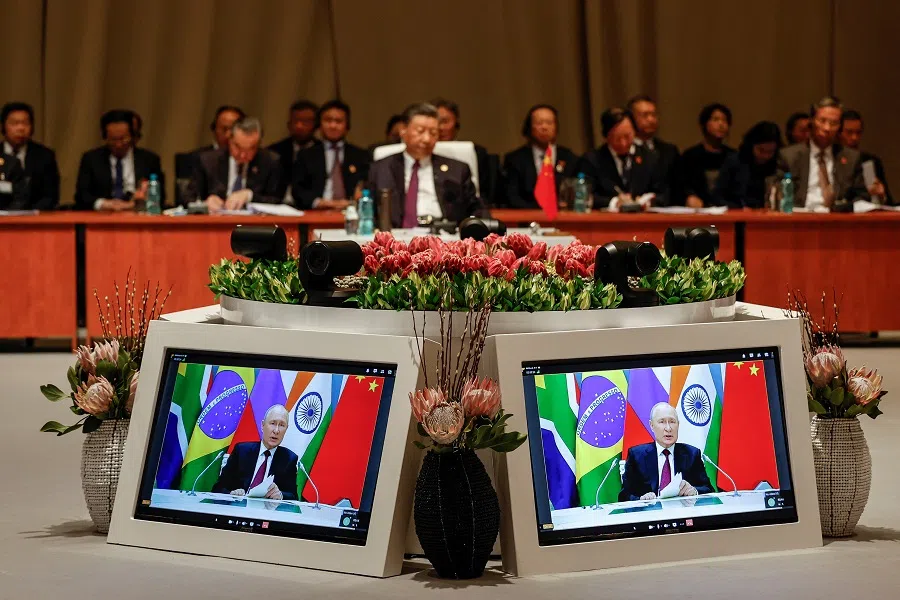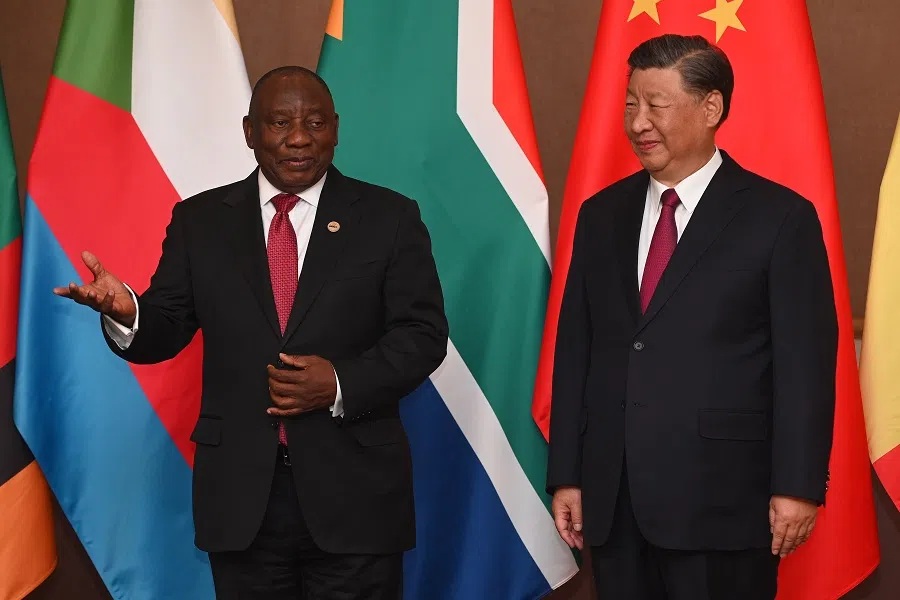BRICS expansion a sign of shifting global governance and security architecture
The world's map of global governance and security architecture is shifting, and BRICS is heeding the call for change, says academic Alessandro Arduino. Countries like Argentina, Egypt, Ethiopia, Iran, Saudi Arabia, and the United Arab Emirates, who have just been invited to join BRICS, seek to diversify their strategic options. This is in line with China's outreach to the global south and Russia's need to combat international isolation, but the other BRICS members may have some hesitation.

The increasing interest expressed by several countries to join the BRICS grouping of Brazil, Russia, India, China and South Africa is proving that BRICS has grown to become much more than the acronym (then BRIC) first used by the economist Jim O'Neill to highlight the economic potential of Brazil, Russia, India, and China. The 15th BRICS summit held in Johannesburg marks a pivotal moment as deliberate steps are taken to advance membership expansion. Argentina, Egypt, Ethiopia, Iran, Saudi Arabia, and the United Arab Emirates have been invited to join the group and could do so as early as 2024.
Currently, the combined member nations of BRICS already represent more than 40% of the world's population and a quarter of the global economy. Given the ongoing changes in global governance and security arrangements, BRICS is responding to the call to evolve and adapt, even though its members have diverse and sometimes conflicting interests. However, they all share a common goal: to create a world with multiple power centres and to wield a stronger influence in global affairs.
The resemblance to the SCO is noteworthy and suggests the BRICS' potential expansion beyond the Middle East and North Africa (MENA) region and South America.
Varying national interests a concern
Yet the difficulty lies in transforming this common aspiration into a viable and efficient organisational structure. While several potential new members aim to hedge their position concerning the US, it remains uncertain how varying national interests might disrupt the enlargement of the group. Apart from the overarching concerns of long-term political agendas, like the competition between China and India, there are immediate challenges among BRICS members such as negotiations regarding agricultural anti-dumping tariffs.

China's expansion of the BRICS group aligns with its continued involvement with countries in the global south. This mirrors China's approach to the Shanghai Cooperation Organisation (SCO), a multilateral platform it also sought to enlarge. The resemblance to the SCO is noteworthy and suggests the BRICS' potential expansion beyond the Middle East and North Africa (MENA) region and South America.
The benefits of seeking BRICS membership are clear-cut. Take Ethiopia, for instance. Its inclusion could provide access to the BRICS contingent reserve arrangement, a financial liquidity mechanism designed to assist BRICS nations encountering payment difficulties. Additionally, there's the backing of the New Development Bank (NDB), also known as the BRICS bank - an international institution that partners with emerging economies on development initiatives. Furthermore, the internal political advantages should not be overlooked. This holds particular significance for countries like Iran, which can demonstrate their avoidance of isolation through this association, as it already happened with Tehran's access to the SCO.
...the BRICS leaders, advocating for increased trade among member countries using their currencies instead of the dollar, signifies a strategic move to lessen the dominant influence of the US in the global financial arena.
Also, the summit has sparked renewed discussions about de-dollarisation. Previously, Russia had floated the concept of introducing a new currency for BRICS, potentially backed by gold, to establish a worldwide medium of exchange within the member nations. This would potentially supersede the dollar's role. However, this scenario appears improbable.

Nonetheless, the BRICS leaders, advocating for increased trade among member countries using their currencies instead of the dollar, signifies a strategic move to lessen the dominant influence of the US in the global financial arena. In China, and notably in Russia, the drive towards de-dollarisation is a strategic shield against the impact of international sanctions. This holds heightened significance, considering the US sanctions' weaponisation against entities through the Western-based SWIFT messaging system.
China benefits, but some members wary of expansion
From the summit declaration, China's potential gains from an expanded membership and outreach to the global south are quite clear. However, countries like Brazil and South Africa remain apprehensive that additional members might dilute their influence within the group. Also, it remains to be observed if India's policy of nonalignment, similar to its approach within the SCO, will effectively counter Beijing's influence in the group.

From the Russian perspective, the goal is clear: Moscow intends to leverage the enlargement of BRICS membership to navigate around the international isolation and sanctions imposed due to its Ukraine invasion. The fact that Russian President Vladimir Putin attended virtually speaks volumes. The issuance of an International Criminal Court warrant for the arrest of Putin created a diplomatic quandary that persisted for weeks, eventually leading to Putin's decision to not attend in person the summit.
The world's map of global governance and security architecture is shifting, and BRICS is heeding the call for change.
Balancing act needed
Many countries in the global south view becoming part of the BRICS as a means to expand options and diversify strategies. In this respect, South African President Cyril Ramaphosa emphasised the country's intention not to align exclusively with major global powers, a sentiment shared by other countries seeking BRICS membership. However, the increase in joint military exercises involving the navies of South Africa, China, and Russia indicates South Africa's delicate balancing act with the US. At the same time, China's growing interest in Africa is evident through heightened political and security involvement, including increased military training for various African armies.
We stand at an inflection point. The world's map of global governance and security architecture is shifting, and BRICS is heeding the call for change. At the core of the 2023 Johannesburg summit lies the task of reshaping global governance.
Amidst their different and sometimes competing motives, the BRICS nations are bound by the common goal of driving this change. The crux of the matter is how to steer through this transformation with their distinct aims. An enlarged membership speaks of BRICS' ambitions, yet it demands commonly shared values in economic, political and cultural spheres.
Related: Instead of seeking support from others, Xi and Biden must meet again | BRICS expansion ups ante but can the momentum be sustained? | Should Indonesia join BRICS? | Expanding the BRICS: New challenges for the embattled world order | Can the BRICS reinvent itself? | [State of our world] The world will be very different from the one we're used to


![[Big read] When the Arctic opens, what happens to Singapore?](https://cassette.sphdigital.com.sg/image/thinkchina/da65edebca34645c711c55e83e9877109b3c53847ebb1305573974651df1d13a)


![[Video] George Yeo: America’s deep pain — and why China won’t colonise](https://cassette.sphdigital.com.sg/image/thinkchina/15083e45d96c12390bdea6af2daf19fd9fcd875aa44a0f92796f34e3dad561cc)